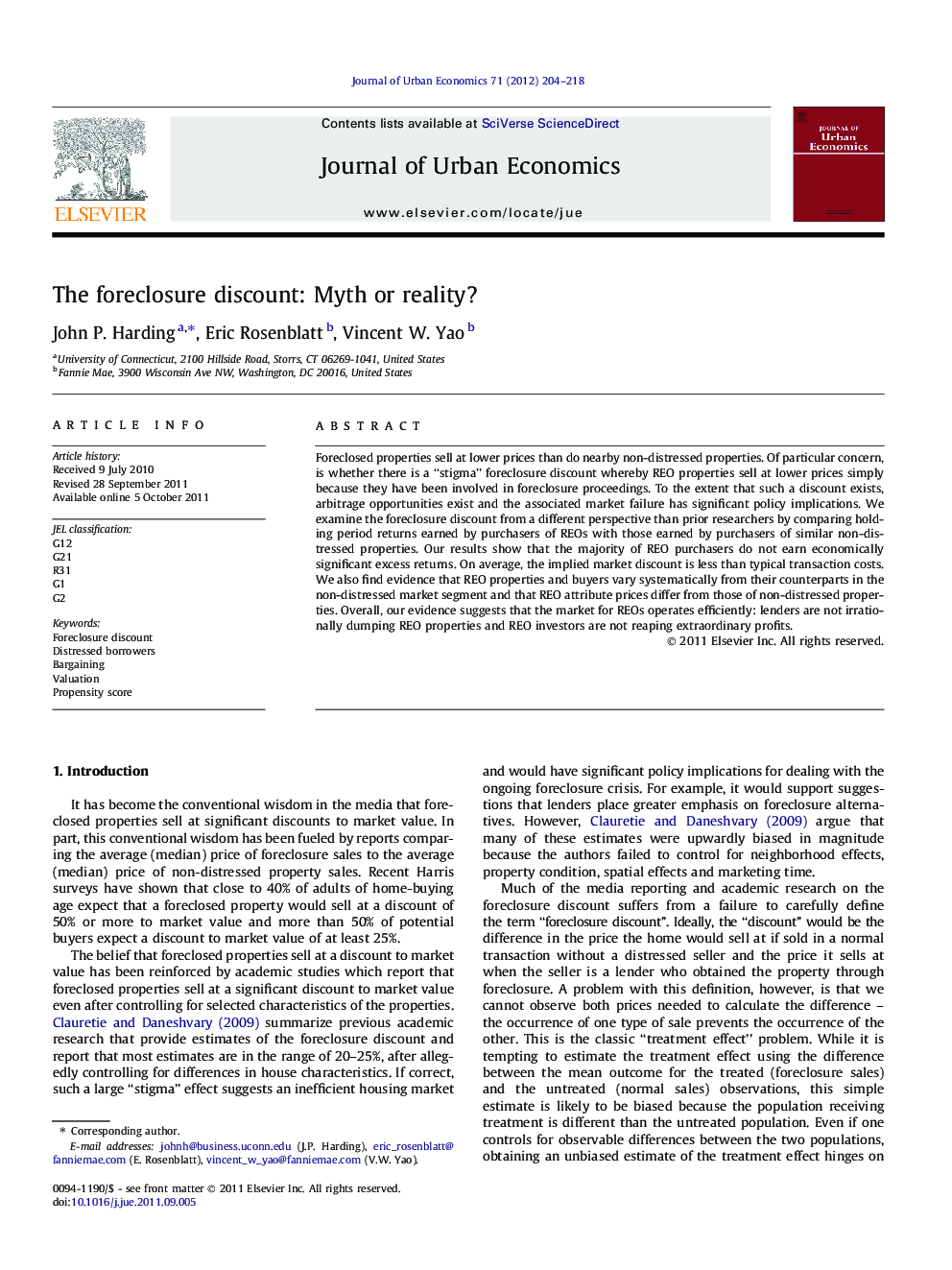| Article ID | Journal | Published Year | Pages | File Type |
|---|---|---|---|---|
| 970881 | Journal of Urban Economics | 2012 | 15 Pages |
Foreclosed properties sell at lower prices than do nearby non-distressed properties. Of particular concern, is whether there is a “stigma” foreclosure discount whereby REO properties sell at lower prices simply because they have been involved in foreclosure proceedings. To the extent that such a discount exists, arbitrage opportunities exist and the associated market failure has significant policy implications. We examine the foreclosure discount from a different perspective than prior researchers by comparing holding period returns earned by purchasers of REOs with those earned by purchasers of similar non-distressed properties. Our results show that the majority of REO purchasers do not earn economically significant excess returns. On average, the implied market discount is less than typical transaction costs. We also find evidence that REO properties and buyers vary systematically from their counterparts in the non-distressed market segment and that REO attribute prices differ from those of non-distressed properties. Overall, our evidence suggests that the market for REOs operates efficiently: lenders are not irrationally dumping REO properties and REO investors are not reaping extraordinary profits.
